Related Research Articles
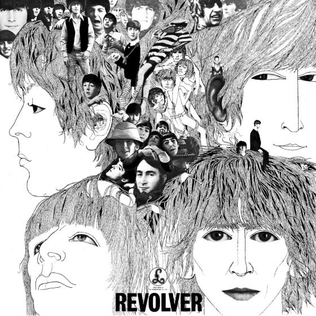
Revolver is the seventh studio album by the English rock band the Beatles. It was released on 5 August 1966, accompanied by the double A-side single "Eleanor Rigby" / "Yellow Submarine". The album was the Beatles' final recording project before their retirement as live performers and marked the group's most overt use of studio technology to date, building on the advances of their late 1965 release Rubber Soul. It has since become regarded as one of the greatest and most innovative albums in the history of popular music, with recognition centred on its range of musical styles, diverse sounds and lyrical content.

The Velvet Underground & Nico is the debut studio album by the American rock band the Velvet Underground and German singer Nico, released in March 1967 through Verve Records. It was recorded in 1966 while the band were featured on Andy Warhol's Exploding Plastic Inevitable tour. The album features experimental performance sensibilities and controversial lyrical topics, including drug abuse, prostitution, sadomasochism and sexual deviancy.

Keith Richards, often referred to during the 1960s and 1970s as "Keith Richard", is an English musician and songwriter who has achieved international fame as the co-founder, guitarist, secondary vocalist, and co-principal songwriter of the Rolling Stones. His songwriting partnership with Mick Jagger is one of the most successful in history. His career spans over six decades, and his guitar playing style has been a trademark of the Rolling Stones throughout the band's career. Richards gained press notoriety for his romantic involvements and illicit drug use, and he was often portrayed as a countercultural figure.

"Street Fighting Man" is a song by the English rock band the Rolling Stones, written by the songwriting team of Mick Jagger and Keith Richards. Considered one of the band's most popular and most controversial songs, it features Indian instrumentation contributed by Brian Jones, which has led to it being characterized as a Raga rock song. It also features controversial and ambiguous lyrics about armed revolution. In the United States, it was released as a single in August 1968, while it was not released in the United Kingdom until four months later on the Beggars Banquet album, where it opened side two. The B-side of the American single featured "No Expectations", considered one of the final Stones tracks in which founding member Jones played a significant role in its construction.

Wild Honey is the 13th studio album by American rock band the Beach Boys, released December 18, 1967 on Capitol Records. It was the group's first foray into soul music and was heavily influenced by the R&B of Motown and Stax Records. The album was the band's worst-selling at that point, charting at number 24 in the US. Lead single "Wild Honey" peaked at number 31, while its follow-up "Darlin'" reached number 19. In the UK, the album peaked at number seven.

Tapestry is the second studio album by American singer-songwriter Carole King, released in 1971 on Ode Records and produced by Lou Adler. The lead singles from the album—"It's Too Late" and "I Feel the Earth Move"—spent five weeks at number one on both the Billboard Hot 100 and Easy Listening charts.
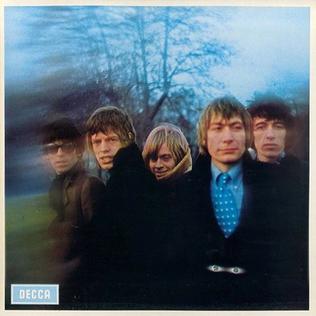
Between the Buttons is the fifth British and seventh American studio album by the English rock band the Rolling Stones, released on 20 January 1967 in the UK and on 11 February in the US. Reflecting the band's brief foray into psychedelia and baroque pop balladry during the era, the album is among their most eclectic works; multi-instrumentalist Brian Jones frequently abandoned his guitar during the sessions in favor of instruments such as organ, marimba, dulcimer, vibraphone, trumpet, and kazoo. Keyboard contributions came from two session players: former Rolling Stones member Ian Stewart and frequent contributor Jack Nitzsche. Between the Buttons would be the last album produced by Andrew Loog Oldham, who had to this point acted as the band's manager and produced all of their albums.

"All You Need Is Love" is a song by the English rock band the Beatles that was released as a non-album single in July 1967. It was written by John Lennon and credited to the Lennon–McCartney partnership. The song was Britain's contribution to Our World, the first live global television link, for which the band were filmed performing it at EMI Studios in London on 25 June. The programme was broadcast via satellite and seen by an audience of over 400 million in 25 countries. Lennon's lyrics were deliberately simplistic, to allow for the show's international audience, and captured the utopian ideals associated with the Summer of Love. The single topped sales charts in Britain, the United States and many other countries, and became an anthem for the counterculture's embrace of flower power philosophy.
Tomorrow were an English musical group active in the 1960s, whose music touched on psychedelic rock, pop and freakbeat. Despite critical acclaim and support from DJ John Peel, who featured them on his "Perfumed Garden" radio show, the band was not a great success in commercial terms. They were among the first psychedelic bands in England, along with Pink Floyd and Soft Machine. Tomorrow recorded the first John Peel show session on BBC Radio 1 on 21 September 1967. The band included Keith West of "Excerpt from A Teenage Opera" fame on vocals and Steve Howe on guitars, who would later join the British progressive rock band Yes.

Got Live If You Want It! is an album of mostly live recordings by the English rock band the Rolling Stones. It was released on 3 December 1966 by London Records in the United States. With its release, the label attempted to fill a marketing gap between the Stones' studio albums and capitalise on their popularity in the US market, which was heightened that year by a famously successful North American concert tour supporting their hit album Aftermath (1966).
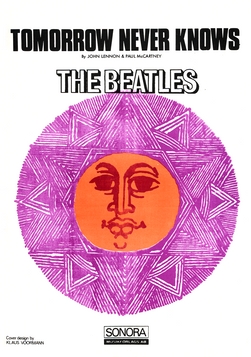
"Tomorrow Never Knows" is a song by the English rock band the Beatles, written primarily by John Lennon and credited to Lennon–McCartney. It was released in August 1966 as the final track on their album Revolver, although it was the first song recorded for the LP. The song marked a radical departure for the Beatles, as the band fully embraced the potential of the recording studio without consideration for reproducing the results in concert.

"Interstellar Overdrive" is an instrumental composition written and performed by Pink Floyd. The song was written in 1966 and is on their 1967 debut album, The Piper at the Gates of Dawn, clocking in at almost ten minutes in length.
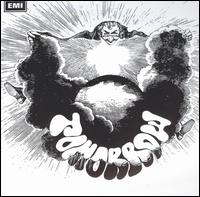
Tomorrow is the only studio album by the English psychedelic rock band Tomorrow. It was originally released in 1968 by EMI Parlophone in the U.K. in a black and white sleeve. A slightly different version of the album was also released in the U.S. in 1968 by Sire Records, one of the first releases on that label. Although it was not a success when it was first released, it is now widely regarded as one of the best psychedelic rock albums ever made.
Keith Hopkins, known by his stage name Keith West, is a British rock singer, songwriter and music producer. He is best known for his single "Excerpt from A Teenage Opera", which reached No. 2 on the UK Singles Chart.
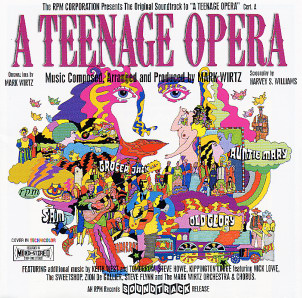
A Teenage Opera is a musical project from the 1960s, created by record producer Mark Wirtz. The first song released from the project was "Excerpt from A Teenage Opera" recorded by Keith West in 1967. The album was not released until 1996, and a stage show was performed in 2017.
"Are You Experienced?" is the title song for the Jimi Hendrix Experience 1967 debut album. It has been described as one of Jimi Hendrix's most original compositions on the album by music writer and biographer Keith Shadwick. The song is largely based on one chord and has a drone-like quality reminiscent of Indian classical music. It features recorded guitar and drum parts that are played backwards and a repeating piano octave. Live recordings from 1968 are included on The Jimi Hendrix Concerts album and Winterland box set.
"My White Bicycle" is a song written by Keith West and Ken Burgess. It was Tomorrow's debut single.

Lei'd in Hawaii is an unfinished live album by American rock band the Beach Boys that was produced shortly after the completion of their 1967 studio album Smiley Smile. It was initially planned to include the band's first live concert performances since their tour of Europe in May 1967.
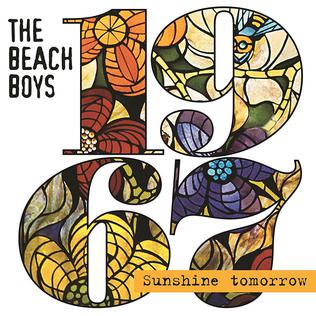
1967 – Sunshine Tomorrow is an expanded reissue of the 1967 album Wild Honey by American rock band the Beach Boys. It was released by Capitol Records on June 30, 2017 and consists largely of previously unreleased material that the group had produced after abandoning Smile in mid-1967. Included is the first ever complete stereo mix of Wild Honey, live performances, outtakes, session highlights, and additional material sourced from Smiley Smile (1967) and the unreleased live effort Lei'd in Hawaii, both of which immediately preceded the Wild Honey sessions.
References
- ↑ "The official Mark Wirtz Home page". Archived from the original on 2007-11-16. Retrieved 2007-12-10.
- ↑ Joynson, Vernon (1995). The Tapestry of Delights. London: Borderline Books. Archived from the original on November 30, 2011. See entry on Tomorrow.
- ↑ "Tomorrow - Tomorrow | Songs, Reviews, Credits". AllMusic .